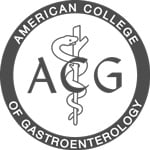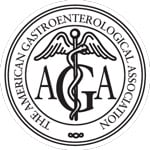Celiac disease is often misunderstood and can go undiagnosed because of its similarity with other disorders. Symptoms can manifest differently for people based on factors such as age and gender, and recognizing them on your own can be difficult.
Here’s what you need to know about identifying the symptoms of celiac disease:
What Is Celiac Disease?
Celiac disease, sometimes called celiac sprue or gluten-sensitive enteropathy, is an autoimmune disorder triggered by ingesting gluten, which causes the body to attack itself, damaging the inner lining of the small intestine and preventing the proper absorption of nutrients.
It is a permanent, genetically inherited condition with no known cure, and for those with the disorder, eating gluten can cause their immune system to destroy the villi—finger-like parts of the small intestine—and lead to malnutrition, or even permanent intestinal damage, if unaddressed.
What Are the Most Common Symptoms?
When someone with celiac disease ingests gluten, some of the most common symptoms experienced may include:
|
|
There are also several instances where celiac disease doesn’t display in the typical way. For instance, those with non-classical celiac disease can present without any signs or symptoms of malabsorption.
There are also variations of the disorder, such as asymptomatic or silent celiac disease, which is when someone with celiac disease shows no outward symptoms. This can be deceptive, however, as people with the disorder will still have intestinal damage if they ingest gluten, even if they do not feel sick.
Celiac may display differently in children with the disorder, who often experience digestive symptoms, including:
|
|
How to Diagnose Celiac Disease?
Recognizing celiac disease in adults can be difficult because its symptoms are often broad, and can overlap with many other chronic conditions.
The way to accurately diagnose celiac disease is by consulting with a doctor or medical specialist, such as an allergist or gastroenterologist, who may run a blood test to determine if elevated levels of certain antibody proteins indicate an immune reaction to gluten.
It's important to get tested for celiac disease before trying a gluten-free diet, as eliminating gluten from your diet might make the results of blood tests appear normal. If the test results come back positive, a doctor will likely order an endoscopy to examine the small intestine and take a small tissue sample to analyze for damage to the villi.
There’s a genetic component to celiac disease, meaning families may be predisposed to it, so it’s especially important to see a doctor to rule out the disorder as early as possible and prevent severe health complications, especially in children.
Many Americans with celiac disease are undiagnosed and unaware they have the condition, according to Beyond Celiac, a leading patient advocacy and celiac research nonprofit.
Where to Go for Help?
The best place to start for diagnosis and treatment is your doctor. While there is no cure for celiac disease, the most effective treatment is to follow a gluten-free diet, which means avoiding all foods that contain gluten, including wheat, barley, rye, and more.
For most people, adhering to a strict, lifelong, gluten-free diet will stop symptoms from manifesting, heal existing intestinal damage, and prevent further deterioration. Even trace amounts of gluten in your diet can be damaging, whether or not they cause signs or symptoms.
A doctor or dietitian may be able to help plan a healthy, gluten-free lifestyle, and if symptoms such as anemia or nutritional deficiencies arise or worsen, they may recommend taking vitamins or supplements to negate some of the negative effects.












